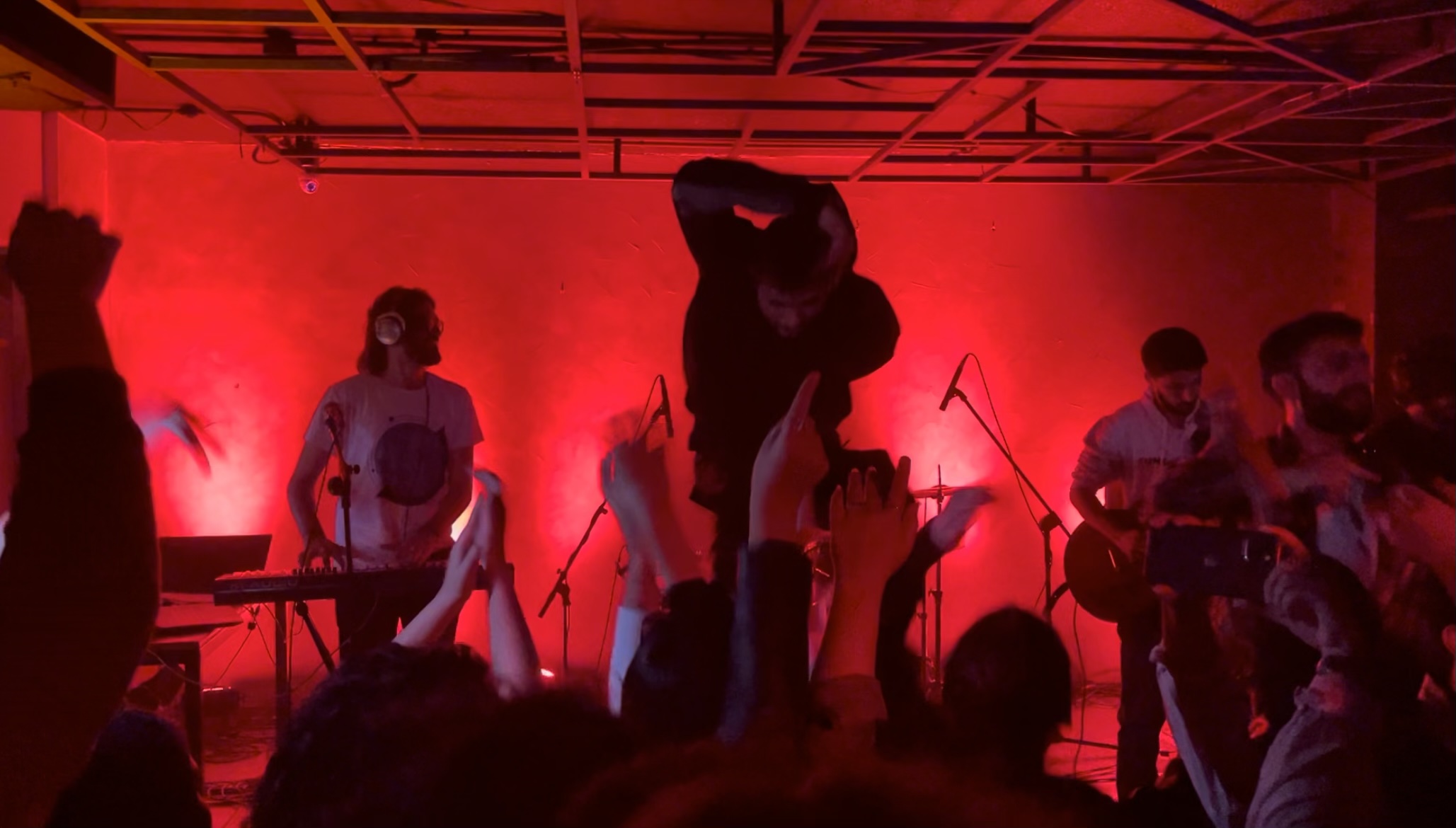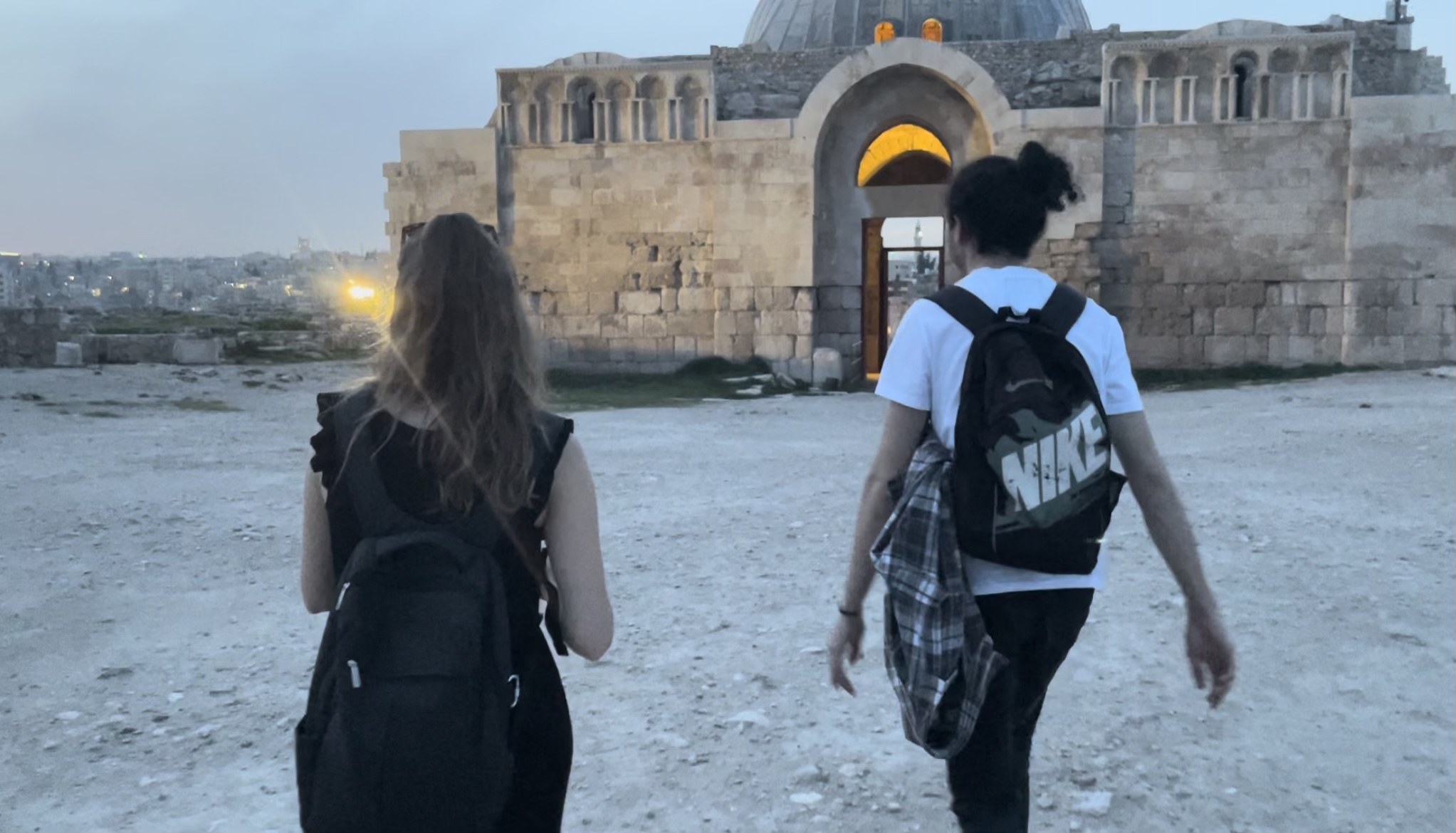In Praise of Global Relationships
It is true that in many ways the Arab world is divided. But even as political turmoil grips the region, spurred often by the self-interested meddling of foreign powers, there is yet a sense in which Arabs are uniquely unified. Perhaps attributed to an Islamic religious inheritance, or perhaps to the ancient tribal history which Arabs carry forward into modernity, the collective, rather than the individual, often takes precedence. During our travels in Jordan, we’ve experienced this unity firsthand–during prayer, everything, and everyone, stops. Prayer mats are unrolled in streets, mosques, living rooms and restaurants, as diverse people come together to do precisely the same thing at precisely the same time, and so become one. It’s beautiful, and special. But the prospect of collectivity isn’t isolated to the Arab world. We’re all human beings, after all. In fact, I think as we, St. Olaf students, look at ourselves through the mirror of Jordanian culture, we can understand and appreciate the ways in which relationships shape and define our own Global experience.
This week, as part of Professor Sonnega’s Media and Democracy course, we had the chance to speak with Illiam, a rapper based in Amman. Backed by his many loyal fans, Illiam has come to define the Jordanian “scene.” He’s a guy full of excitement and ambition, eager to share his music and his Jordanian life with us. After our class discussion, Illiam invited us to his show the following night. We could hang with him backstage, he said. And so we went. Before the show, Illiam introduced us to the other rappers in the lineup, and we greeted each with a “tasharafna” and an affectionate slap on the back. As the show got underway, we were enveloped by tobacco smoke and sweaty young adults, shouting “ILLIAM! ILLIAM!” in support of our new friend. The following week, a group of Global students, me excluded, met Illiam at his home, where he welcomed them with open arms.

Following Illiam’s concert, we had the first of three consecutive “free days.” A large group headed south to visit the beautiful city of Aqaba, situated on the bank of the Red Sea, while I, along with four others, stayed back to explore Amman. After reveling in some much-needed extra sleep (our Aqaba-bound peers were not so lucky, and I’m sure groaned their way to the bus stop at about 7:00 a.m.), Emma and I headed downtown to meet Moe. We first met Moe at FNL, a clothing store on Rainbow Street, where he works. That day, Moe and I struck up a conversation as Emma and Jossy browsed. It began with Moe’s Jordan recommendations—where to visit, what to do—but ended in a promise to meet again soon. Thus, Emma and I ended up gladly making good on our word, following Moe from shop to shop, exploring the literal and figurative corners of Amman which our ignorance of the place and of the Arabic language would’ve otherwise made inaccessible. Moe knows the city like the back of his hand. Eventually, we made our way to the Roman (also, historically speaking, Byzantine and Umayyad) Citadel, perched atop a ridge in the middle of town. Turned away at the door by a cohort of uniformed men, who had decided, with little discernible reason, that they were no longer in the mood to admit visitors, we began to look for an “alternative entrance.” So, soon enough, I found myself plastered to the ancient limestone brick halfway up a wall on the other side of the ruins, but to no avail. As we descended the hill, we were flagged down by a security guard on the street below. We exchanged nervous glances. Had he seen us trying to climb the wall? Would we be calling a disgruntled Professor Sonnega from the back of a police car? As luck would have it, not this week! The man began speaking Arabic, and Moe, naturally, took the lead. With a kind smile, the man pointed us in the direction of an unmarked entrance between some houses, and offered us coffee at his home after we had gotten our fill of the Citadel. With a “shukran” to the kind stranger, we parted ways and Emma, Moe and I found our way to the Citadel, just as the sun began to set and the final call to prayer began. As children laughed, playing soccer behind us, and as we felt the evening breeze rush up from the twinkling valley below, we sat in silence as a wonderful day in Amman came to a close.

So what is to be said of Illiam and Moe and the relationships we forged with them? To me, relationships like these are what imbue travel, and thus our Global semester, with meaning. Natural spaces like Santa Lucia in Ecuador and Wadi Rum here in Jordan are striking, to be sure, but going away from home as we have is about more than seeing wonderful, beautiful, breathtaking new things; it’s also, most importantly, about people, and uncovering new ways of seeing the banal and the everyday through their eyes. Relating to Illiam and Moe as such is a gift we ought not take for granted. But there’s something more that might be said of these relationships–something that differentiates them from other wonderful relationships one enjoys among family and friends back home. Illiam and I, and Moe and I, don’t necessarily have all that much in common. But with Moe, for sure, and Illiam, to some extent, I still consider myself a friend. In both cases, the beauty and the excitement of cross-cultural exchange is enough to warrant human vulnerability, and thereby to opportune the establishment of trust. Communion with others is simply a part of being human, irrespective of considerations of superficial compatibility. We need not necessarily share personality traits or interests with others if we can yet find ways to share the beauty of a single moment, whether in a hip rap club or atop an ancient Roman citadel. Let us be thankful for these wonderful relationships of global happenstance, and travel onward actively in search of more.
You must be logged in to post a comment.